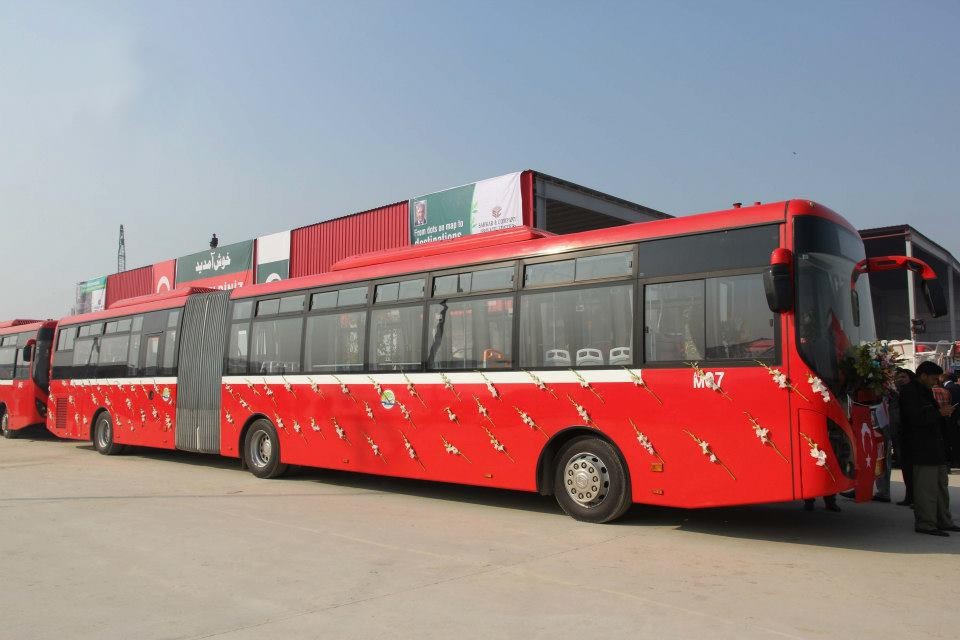

Road blocks, dust, and chaos greet you as you commute by road from one end of Islamabad to another. One of the main arteries leading into Islamabad is closed down for the Metro Bus project that the government seems too adamant to complete, despite an apparent negative environmental impact.
Overspending of taxpayers’ money and other such concerns also surfaced after the launch was announced in March this year.
"The project started even before the environmental impact assessment could be completed. The Environment Protection Agency (EPA) chief at the hearing last Saturday assured us that our concerns will be taken into account, but they have already started the excavation, digging and construction phase which shows that those undertaking the project want to go ahead with the project whatever is the environmental assessment," says Javed Chishti, a resident of Islamabad and an environmentalist who was present at the recent EPA hearing.
Chishti pointed out the EPA hearing took place after work on the Metro Bus project in Islamabad had already commenced.
The Rawalpindi to Islamabad bus aims to connect the twin-cities as the project will run from Murree Road in Pindi to Jinnah Avenue in Islamabad.
Trees can be seen being uprooted, which the government promises to replant elsewhere but a visit to the site proves otherwise. The trees are just being cut down and the greenbelts are being dug out to make spaces for extra lanes on the path of the Metro Bus when it will enter Islamabad.
"We are not against a mass-transit system," says Bilal Haque, who shared a presentation he recently delivered at a local café in Islamabad where civil society activists met to discuss ways to incorporate changes they feel could improve the execution of the Metro Bus project.
According to Haque, Islamabad is a one-of-a-kind planned city in Pakistan and was originally based on the concept of a ‘dynametropolis’ which allows expansion of the city with minimal adverse effects on urban life. "The rush for the project ignores CDA’s own plans for a bus system on existing roads, with three routes: Rawat to Federal Secretariat, I-10 to Secretariat and Bhara Kahu to Secretariat. This project needs to be revived," adds Haque.
The Supreme Court of Pakistan in March took a suo moto notice of the issue, but the hearing in this regard is still pending. The concerned citizens of Islamabad who are running ‘Save Islamabad’ campaign, of which other eminent environmentalists and activists are a part, will be challenging the project at the Islamabad High Court. They are currently discussing legal aspects of that petition.
"We are waiting for the Supreme Court hearings to begin but there seems to be a mysterious delay at the level of superior judiciary and we have our doubts that some power players might be behind it," says Chishti.
He says the idea to go to the Islamabad High Court is to ask for a stay since not only is the Metro Bus project endangering the environment, it is also threatening the livelihood of 3000 vendors of the Sunday market that the government plans to reduce to one-third of its size, in pursuit of constructing the bus lanes.
"We have involved the traders association from the Sunday market and we will also be holding peaceful protests and going to the courts so that the government addresses these flaws in the project," says Chishti.
The first of these protests was on Friday. The venue was Sunday Bazar.
On its part, the government insists the greenbelts were never intended to be green belts forever in the master plan and when the expansion of Islamabad were to happen, the greenbelts were to be converted into roads.
But the activists feel otherwise. For them, losing green belts which serve as mini-forests will be a disaster in the long run. "From the green sight the year round, with yellow dandelion flowers in spring, to replenishing the underground water, these green belts are irreplaceable, be it against monetary gain or other beautification exercises," says Haque.
Talking to various stakeholders, it is apparent the project lacks transparency which environmentalists feel is a mockery of rule of law.
Activists question the funding of the project. The total project, reportedly, will cost more than 40 billion rupees. "The Capital Development Authority (CDA) of Islamabad had a bus transport plan that would have cost around Rs7.4 billion. Why was that shelved?" asks Chishti, and then adds that constructions like these where most of the rules are being flouted and no authentic environmental assessment has been done, makes the project suspicious.
"From where is the government importing the buses? What about the contractors that are involved? It seems obvious there are kickbacks here," he adds, also pointing to the fact that the prime minister has given the project to Rawalpindi Development Authority, and has sidelined CDA throughout the project -- even though as per rules it is the CDA that should look after any development project in Islamabad.
The government, which completed a similar metro bus system in Lahore previously, has come under criticism for that project too. "In Lahore, Metro Bus’s elevated expressway blocked the view to the most famous Badshahi Mosque, which is one of the most visited sites in Pakistan. Not only that -- inefficient use of raised platform for the buses was a non-optimised use of expensive infrastructure," says Haque.
While these concerned citizens of Islamabad try to stop the government from creating an environmental disaster, the government plans to finish the project in the next ten months and work on multiple areas has already begun. In short-term this is causing traffic chaos. Islamabad residents complain of lack of alternate traffic plan.